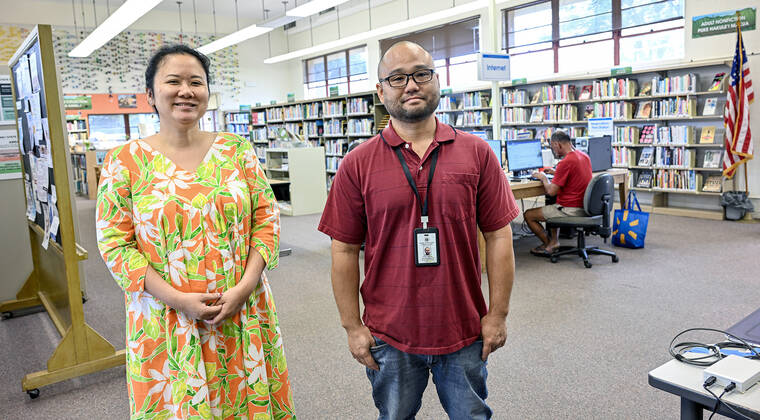WAIMEA — The Waimea branch of the Hawai‘i State Public Library System, better known to people as the Waimea Public Library, has received a $10,000 grant to help better serve people with disabilities, the Library Development Services announced on Friday.
WAIMEA — The Waimea branch of the Hawai‘i State Public Library System, better known to people as the Waimea Public Library, has received a $10,000 grant to help better serve people with disabilities, the Library Development Services announced on Friday.
“This funding ensures that the Waimea Public Library is able to provide additional accessibility resources for members of our community,” said State Librarian Stacey A. Aldrich. “About half of the HSPLS 51 public libraries are small or rural, and we plan to use what we learn in this program to enhance accessibility to library services across the state.”
Waimea Public Library was selected as one of 310 libraries to participate in Round 2 of “Libraries Transforming Communities: Accessible Small and Rural Communities.” It is an American Library Association (ALA) initiative.
“We are grateful for this opportunity to learn how to better serve patrons with disabilities. This grant funding will enable our library to better respond to the needs and interest expressed by local adults with disabilities,” said Waimea Public Library Branch Manager Michelle Young.
“It will also help us to deepen community relationships overall. Though we are focusing on a specific group of people, all the new materials we purchase, and any programs we plan will benefit the entire westside community.”
The Library Development Services announcement states that anyone interested in getting involved or taking part in the conversation can contact the Waimea Public Library at 808-338-6448 or email michelle.young@librarieshawaii.org.
Since 2014, the ALA’s Libraries Transforming Communities initiative has reimagined the role libraries play in supporting communities.
Libraries of all types have utilized free dialogue and deliberation training and resources to lead communities and campus forums, take part in anti-violence activities, provide a space for residents to come together and discuss challenging topics, and have productive conversations with civic leaders, library trustees and the library’s staff.



